The nerds are back at it in the lab looking a the difference this time in a cool study (1) from Dr Luke van Loon’s lab where they compared a vegan meal to a meat based meal and its effect on nerdy measure like MPS aka muscle protein synthetic response.
In this brand new study (1) the researchers investigated 16 participants with a randomized counter-balanced, cross-over design –all epic nerdy words. The research examined various factors, including plasma glucose, insulin, amino acids, phenylalanine oxidation rates, protein synthesis (MPS), and GI complaints, using a 2-factor repeated measures ANOVA.
The meals
In one arm of the study, omnivorous “meat meal” contained lean beef, potatoes, and vegetables, while the vegan meal contained a variety of plant-based protein sources, including tofu, seitan, and legumes, as well as potatoes and vegetables.
Here is what is cool and different as both meals were matched for energy content, macronutrient composition, and fiber content and protein amount, clocking in around 36 g protein from plant-based sources and meat based sources.
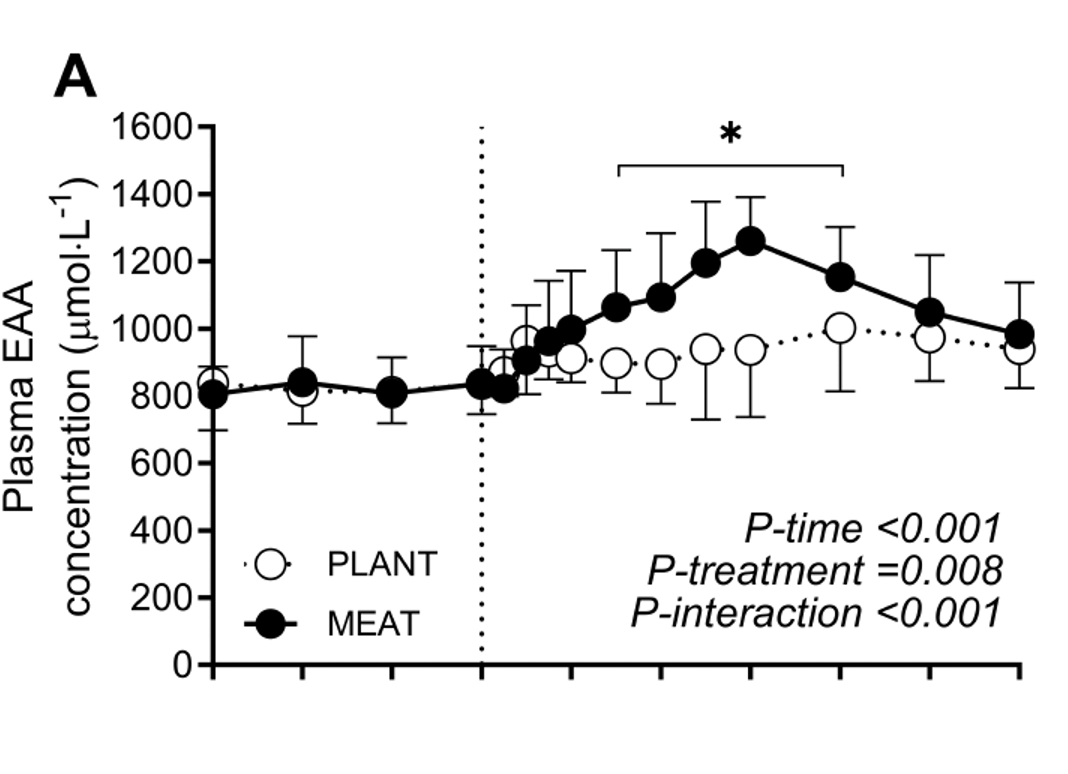
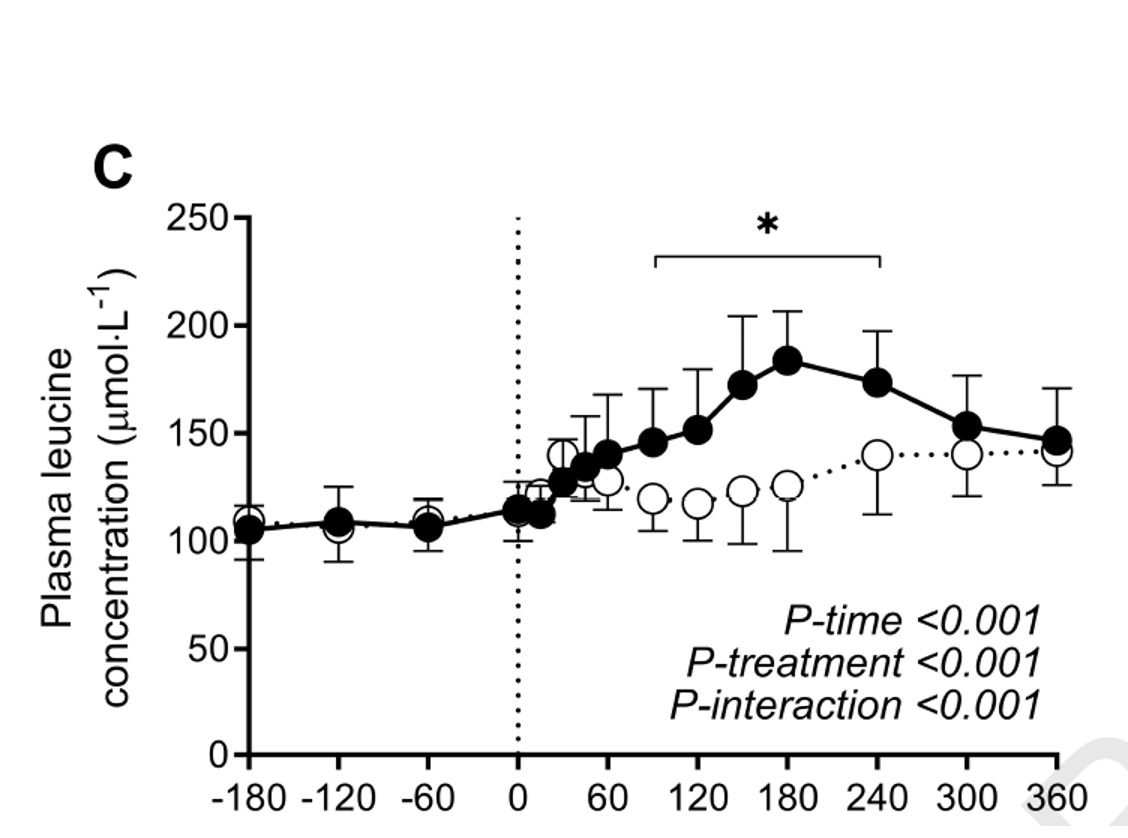
While a 47% increase in MPS sounds amazing (and it was statistically significant), what does that mean in the real world to Doooode Bros pumping iron in the gym?
To answer that, I reached out to Dr Myohead (Dr David Church) who has conducted similar research to ask. Here’s his response:
“It is certainly plausible that this difference observed if carried out over the long-term would result in an appreciable change in muscle. Although I would expect to see more of an effect on measures of muscle strength rather than mass. For example, a systematic review and Meta-analysis from Dr. Paul Morgan shows that higher protein quality was associated with superior strength gains with resistance exercise training, but there was no effect on changes to LBM.
Further, a recent study investigated differences in omnivore and a plant-based diet with protein intakes at 1.6g/kg/day in conjunction with twice weekly supervised exercise training. The increases in “muscle mass” measures (Dexa leg lean mass, muscle cross section area, and muscle fiber area) were nearly identical. However, the omnivore diet group increased leg press 1RM by 122Kg whereas the plant-based group increased by 96. Although not statistically significant a 26kg (57.2lb) greater increase over 24 exercise training sessions is not a trivial effect.” – Dr David Church
(For more from Dr. Church, check out Flex Diet Podcast Episode 238: Exploring Muscle Protein, Testosterone, and Exercise with Dr. David Church)
This study suggests that the presence or absence of various components that constitute the whole-food matrix can strongly impact protein digestion and amino acid absorption, and as such, modulate post-prandial muscle protein synthesis rates.
In this comparison, meat was the winner.
Side note: while meat was better here, other studies (2-4) have shown that getting sufficient amounts of plant -based proteins is helpful to increase muscle tissue;h owever, in a head to head comparison in this study, meat was the winner.
Rock on,
Dr Mike
P.S. My favorite protein is from Driven Nutrition, as it’s both high quality and tastes amazing. Go to the link below – which is an affiliate link so I make a few clams off it.
www.miketnelsonprotein.com
Use code DRMIKE to save 15% off everything on the site.
References
1) Pinckaers PJM, Domić J, Petrick HL, Holwerda AM, Trommelen J, Hendriks FK, Houben LHP, Goessens JPB, van Kranenburg JMX, Senden JM, de Groot LCPGM, Verdijk LB, Snijders T, van Loon LJC. Higher muscle protein synthesis rates following ingestion of an omnivorous meal compared with an isocaloric and isonitrogenous vegan meal in healthy, older adults. J Nutr. 2023 Nov 14:S0022-3166(23)72723-5. doi: 10.1016/j.tjnut.2023.11.004. Epub ahead of print. PMID: 37972895.
2) Tang, J.E., et al., Ingestion of whey hydrolysate, casein, or soy protein isolate: effects on mixed muscle protein synthesis at rest and following resistance exercise in young men. J Appl Physiol (1985), 2009. 107(3): p. 987-92.
3) Yang, Y., et al., Myofibrillar protein synthesis following ingestion of soy protein isolate at rest and after resistance exercise in elderly men. Nutr Metab (Lond), 2012. 9(1): p. 57.
4) van Vliet, S., N.A. Burd, and L.J. van Loon, The Skeletal Muscle Anabolic Response to Plant- versus Animal-Based Protein Consumption. J Nutr, 2015. 145(9): p. 1981-91.

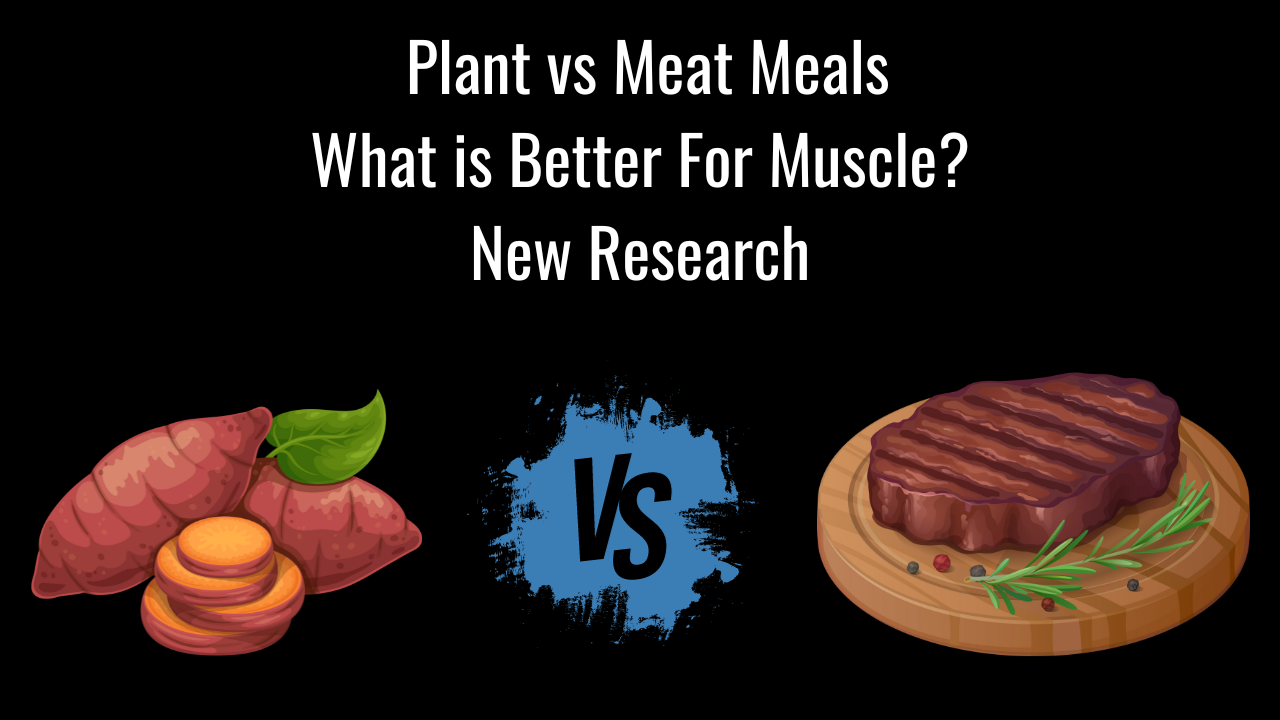

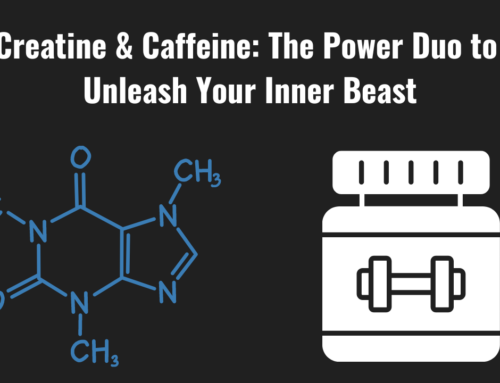
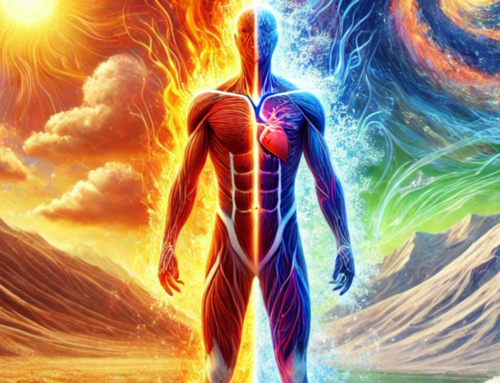
Leave A Comment